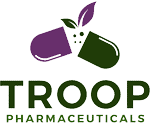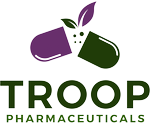Glutathione is the most powerful naturally occurring antioxidant in all human cells, and is often referred to as the body’s “master antioxidant”. The ability to produce and maintain a high level of glutathione is critical to recovery from chronic illnesses, preventing disease and maintaining optimal health and performance. Let’s explore glutathione benefits for your health.
Composed of glutamic acid, cysteine and glycine, glutathione is a powerful antioxidant needed for cellular production of energy and helps to detoxify the body and neutralize free radicals while supporting the immune system. It is known for its role in providing antioxidant protection for the body’s tissues, including the arteries, brain, heart, liver, lungs and skin.
Glutathione can help support the treatment of any disease as an antioxidant but the following have been found to have the most support:
- General Immune Support
- Parkinson’s
- Alzheimer’s
- Auto-immune Disorders
- HIV/AIDS
- High Blood Pressure
Glutathione levels decrease as the body ages, and as environmental and oxidative stressors deplete natural stores in the body. Common stressors include:
- Ultraviolet and other radiation
- Heavy metals
- Cigarette smoke
- Exhaust from motor vehicles
- Household chemicals
- Dietary Factors
- Other environmental toxins
All cells in the human body are capable of synthesizing glutathione. But the highest concentration of glutathione is found in the liver, making it critically important in the detoxification and elimination of free radicals. Free radicals are highly reactive compounds created in the body during normal metabolic functions; they can also enter the body through the environment. Accumulation of these compounds can result in oxidative stress, which occurs when the generation of free radicals in the body exceeds the body’s ability to neutralize and eliminate them.
Metabolically, glutathione has many functions. As previously mentioned, glutathione plays a substantial role in the functioning of the body’s immune system. Its antioxidant property makes it vital to white blood cells (lymphocytes) as it allows them to reach their full potential during the oxygen-requiring activity of the body’s immune response.
White blood cells in their immune response aid in detoxification of the body and as glutathione levels decrease, so does the body’s ability to eliminate toxins. This leads to the death of white blood cells thereby weakening the body’s immune system.
Other antioxidants in the body depend on glutathione as well. Glutathione recycles vitamins C and E after they have been oxidized, therefore playing a decisive role in their normal function.
Antioxidants can help your body repair damage caused by such things as stress, radiation, infections, drugs, medications, malnutrition and aging.
Glutathione also helps us reach peak mental and physical function. Research has shown that raised glutathione levels decrease muscle damage, reduce recovery time, increase strength and endurance and shift metabolism from fat production to muscle development.
If you are aging, suffering from an illness or are just not in ideal physical condition, it is likely you have glutathione deficiency.
There are many things you can do to increase glutathione in your body including exercise, supplementation and eating glutathione-boosting foods. Here are a few ideas.
- Eat sulfur-rich foods such as garlic, onions and the cruciferous vegetables including broccoli, kale, cabbage and cauliflower.
- Try bioactive whey protein.This is great source of cysteine and the amino acid building blocks for glutathione synthesis.
- Supplementation is perhaps the most critical to keep the body producing glutathione. We recommend the combination of Cellgevity and Immunocal.
Reference: Priorityyoumd
Written by: Omojo Emeje




